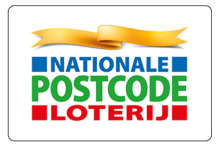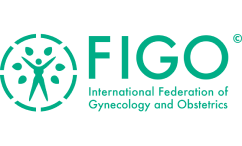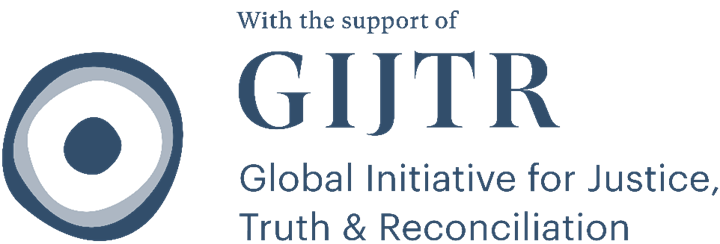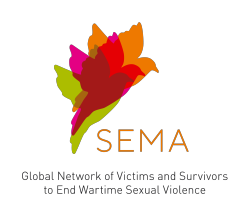About
Foreword
Dear Readers,
For nearly 25 years, I and the staff of the Panzi Hospital in the Democratic Republic of Congo, whose original purpose was to combat maternal mortality, have taken charge of survivors of sexual violence and helped them rebuild their lives. After all these years, we simply cannot continue to tolerate the persistence of this widespread crime in the majority of conflicts around the world.
The international community can no longer limit itself to reacting after the fact once these despicable crimes have already been committed, whether through reparative responses or legal actions.
Conflict-related sexual violence violates our shared humanity and can no longer be accepted as an inevitable consequence of war, but must be seen as a totally unacceptable method that no longer has a place in modern armed conflicts.
These crimes never happen accidentally. It is a choice to employ or tolerate them: therefore, they can be stopped.
This is why for 10 years I have been calling on the international community to draw a red line against the use of sexual violence as a weapon of war. The time has come for States to act to stop this scourge.
To support my call to action, the Mukwege Foundation has launched the “Red Line Initiative”, a global campaign to eliminate the use of sexual violence in conflict, the first of which is the launch of the “Guidebook on State Obligations for Conflict-Related Sexual Violence”.
The guidebook compiles all of the applicable international law and norms relating to conflict-related sexual violence into a handbook with an aim to inform States in a comprehensive manner of their current obligations under international humanitarian law, international human rights law, and UN Security Council resolutions that form the Women, Peace and Security agenda.
This new guidebook – which is divided into four thematic areas: prevention, justice and accountability, humanitarian response, and reparations – also aims to raise awareness and strengthen the capacity of civil society, including survivor movements, in asserting their rights and to support their advocacy efforts to hold States accountable.
What is clear from reading the guidebook is that there is already a robust set of obligations and that, if States fully respect them, significant progress would be made towards ending the scourge of conflict-related sexual violence.
Everyone knows the saying, “No one is supposed to ignore the law”. I hope that this guidebook, as an accessible online resource, will contribute to ensuring that States no longer ignore their obligations to prevent, respond to and end conflict-related sexual violence, and will aid them to finally meet their international commitments.
I would like to express my gratitude to all those involved in the development of the guidebook. Without the help of the Mukwege Foundation, which has worked with legal experts, civil society and academic experts, and survivors who graciously donated their time and expertise to enrich the guidebook, this important initiative would not have seen the light of day.
It is my sincere hope that this guidebook will contribute to finally reaching a turning point in our struggle for human dignity and justice and will allow the scourge of conflict-related sexual violence to be forgotten in history.
Together, we will succeed!
Dr. Denis Mukwege
Acknowledgements
The Guidebook on State Obligations for Conflict-Related Sexual Violence would not have been possible without the support and assistance of too many people to name individually.
The Dr. Denis Mukwege Foundation first wishes to express its gratitude to the experts that participated in the Expert Conference on the Treaty-Making Process organised in March 2022. Their insights and collaborative engagement with the Red Line Initiative team inspired the initial idea for the Guidebook. This initial idea was discussed during a workshop at the 2021 SEMA Global retreat and resulted in SEMA’s support for the creation of the Guidebook as a key Red Line Initiative priority. The Mukwege Foundation is grateful for SEMA’s partnership and guidance in how to ensure that the Guidebook addresses the needs and priorities of CRSV survivors.
The Mukwege Foundation would also like to express its sincere gratitude to all of the legal experts, academics, UN staff, members of civil society, and survivors who gave so graciously of their time and expertise to review drafts, participated in roundtables and consultations during the design and production phase of the project, and provided resources for the “Further Readings” chapter.
The staff of the UK Foreign, Commonwealth, and Development Office has provided invaluable support throughout the entire project.
Finally, while the Guidebook is the result of a collaborative process with many contributors, no one’s contribution was more invaluable than that of the project’s two legal researchers, Ms Sara Cristina Fernandez Rivera, who conducted research on the regional human rights systems, and Mr Luca Caroli, who researched the remainder of and assisted with drafting and revising the Guidebook.
Contact Information
If you have any queries or feedback, please click on the icons at the bottom right of the page to find us on social media and the Mukwege Foundation’s website. You may also contact us by:
- Email: info@mukwegefoundation.org
- Phone: +316 16 20 95 60
The Hague Office
Alexanderveld 5
2585DB The Hague
The Netherlands
DISCLAIMER
This Guidebook is a product of the Mukwege Foundation’s Red Line Initiative, “Law of State Obligations for Conflict-Related Sexual Violence Guidebook Project”, which is partially funded by UK Aid from the UK government. The accuracy of the information and any views expressed in this Guidebook remain the sole responsibility of the authors and should not be taken as any reflection of the views or official policies of the UK Government, which may differ. The UK Government accepts no responsibility for any consequence of the use of or reliance on the Guidebook or any statements in it. This Guidebook is provided for general information purposes only and does not constitute legal or professional advice on any subject matter.

 EN
EN FR
FR ES
ES UK
UK



